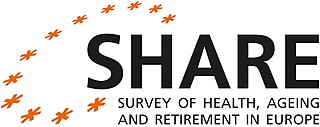 W
WRetirement is the withdrawal from one's position or occupation or from one's active working life. A person may also semi-retire by reducing work hours or workload.
 W
WBedesman, or beadsman, was generally a pensioner or almsman whose duty it was to pray for his benefactor.
 W
WThe dependency ratio is an age-population ratio of those typically not in the labor force and those typically in the labor force. It is used to measure the pressure on the productive population.
 W
WA retirement home – sometimes called an old people's home or old age home, although old people's home can also refer to a nursing home – is a multi-residence housing facility intended for the elderly. Typically, each person or couple in the home has an apartment-style room or suite of rooms. Additional facilities are provided within the building. This can include facilities for meals, gatherings, recreation activities, and some form of health or hospital care. A place in a retirement home can be paid for on a rental basis, like an apartment, or can be bought in perpetuity on the same basis as a condominium.
 W
WRetirement is the withdrawal from one's position or occupation or from one's active working life. A person may also semi-retire by reducing work hours or workload.
 W
WMr. Money Mustache is the website and pseudonym of 47-year-old Canadian-born blogger Peter Adeney. Adeney retired from his job as a software engineer in 2005 at age 30 by spending only a small percentage of his annual salary and consistently investing the remainder, primarily in stock market index funds. Adeney lives in Longmont, Colorado, and contends that most middle-class individuals can and should spend less money and own fewer physical possessions, and that they can live with increased financial freedom and happiness as well as a decreased environmental footprint as a result. He has described the typical middle-class lifestyle as "an exploding volcano of wastefulness," particularly citing the overuse of and overspending on new cars as an example. The blog has been featured and cited in various media outlets including Market Watch, CBS News, and The New Yorker, as well as others.
 W
WAt retirement, individuals stop working and no longer get employment earnings, and enter a phase of their lives, where they rely on the assets they have accumulated, to supply money for their spending needs for the rest of their lives. Retirement spend-down, or withdrawal rate, is the strategy a retiree follows to spend, decumulate or withdraw assets during retirement.
 W
WRetiring the number of an athlete is an honor a team bestows upon a player, usually after the player has left the team, retires from the sport, or dies. Once a number is retired, no future player from the team may wear that number on their uniform, unless the player so-honored permits it; however, in many cases the number cannot be used at all. Such an honor may also be bestowed on players who had highly memorable careers, died prematurely under tragic circumstances, or have had their promising careers ended by serious injury. Some sports that retire team numbers include baseball, cricket, ice hockey, basketball, American football, and association football. Retired jerseys are often referred to as "hanging from the rafters" as they are, literally, put to hang in the team's home arena.
 W
WSocial protection, as defined by the United Nations Research Institute for Social Development, is concerned with preventing, managing, and overcoming situations that adversely affect people's well-being. Social protection consists of policies and programs designed to reduce poverty and vulnerability by promoting efficient labour markets, diminishing people's exposure to risks, and enhancing their capacity to manage economic and social risks, such as unemployment, exclusion, sickness, disability, and old age. It is one of the targets of the United Nations Sustainable Development Goal 10 aimed at promoting greater equality.
 W
WThe Survey of Health, Ageing and Retirement in Europe (SHARE) is a multidisciplinary and cross-national panel database of micro data on health, socio-economic status and social and family networks. In seven survey waves to date, SHARE has conducted approximately 380,000 interviews with about 140,000 individuals aged 50 and over. The survey covers 27 European countries and Israel.